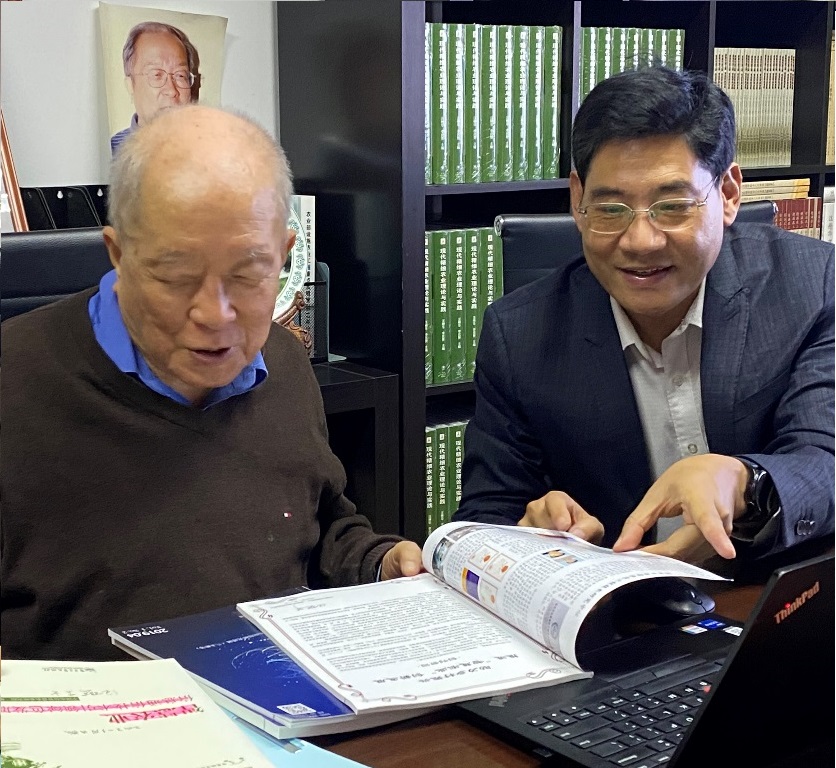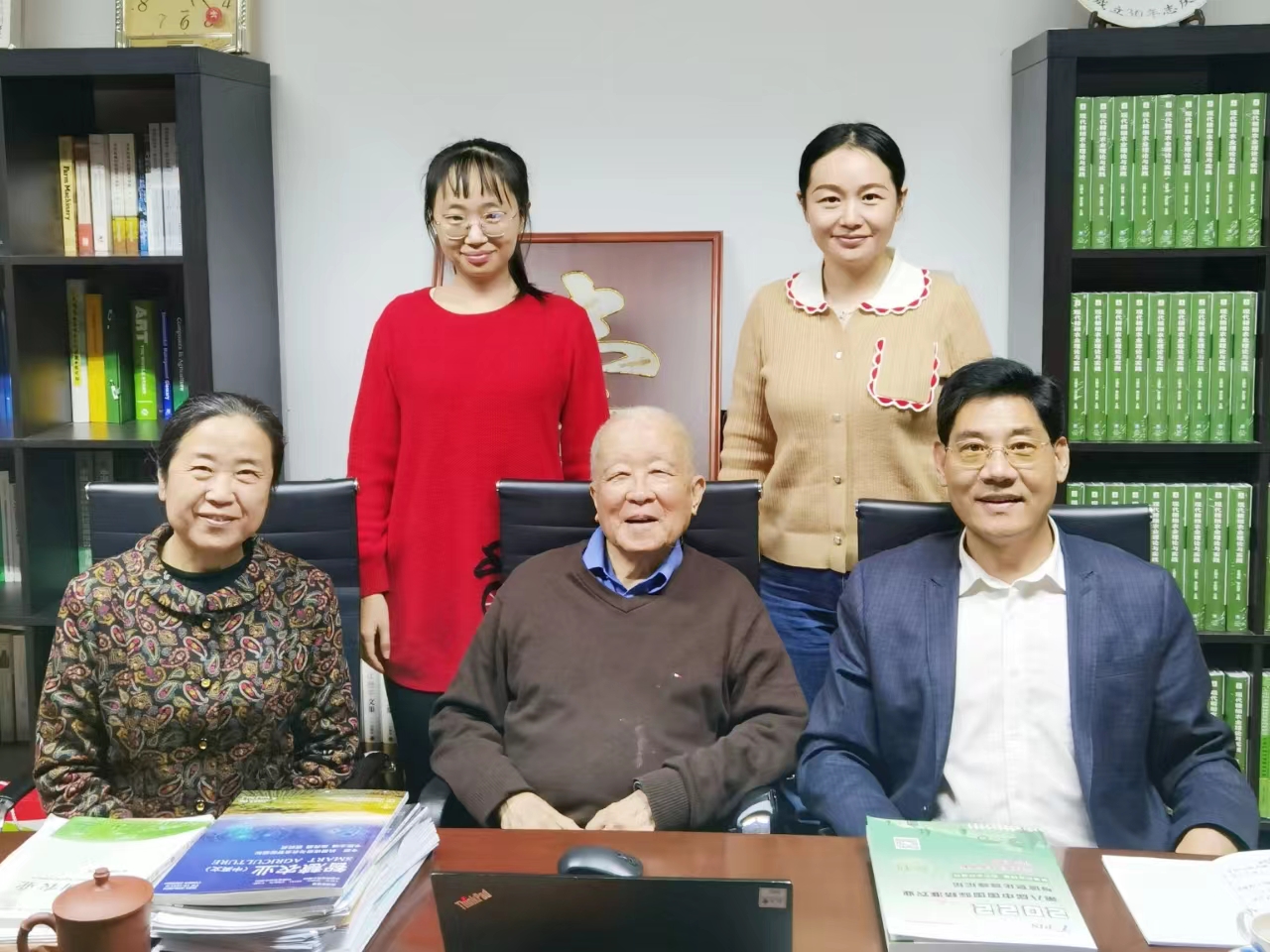On the afternoon of November 21, 2023, Director Liu Jifang, a member of the editorial board of Smart Agriculture, Executive Editor Zhu Yeping, and members of the editorial department visited and met with Academician Wang Maohua, a consultant of our journal, a Chinese academician, and a member of the International Eurasian Academy of Sciences, at the College of Information and Electrical Engineering of China Agricultural University.
At the age of 91, Academician Wang was very pleased with the visit of the editorial department and happily recalled the congratulatory message he wrote for the inaugural issue of "Smart Agriculture" on January 30, 2019. Executive Editor Zhu Yeping introduced the recent development of the journal to Academician Wang, who affirmed the achievements of the journal and hoped that it would continue to focus on and report on the hot topics in the smart agriculture industry, thereby promoting the innovative development of the smart agriculture industry system.

Subsequently, Academician Wang shared some of his recent thoughts on the development of "smart agriculture". He mentioned that, from a global perspective, "smart agriculture" has gone through several stages of development. The first stage was triggered by the application of global geographic information systems (GIS) and remote sensing (RS) systems in agriculture in 1980, leading to the research and practice of "precision agriculture" in the positioning of farmland soil and crops. The second stage occurred at the end of 1993 after the end of the Gulf War, when the U.S. President announced the civilian use of the global positioning system (GPS), which drove the innovation and practice of precision agriculture systems. The third stage was at the end of 2008, in response to the U.S. financial crisis, when the director of IBM proposed the construction of a "Smart Planet" to the then U.S. President Obama, thereby introducing the concept of smart agriculture.
Academician Wang believes that "smart agriculture" is an integrated system based on the deep integration and development of the new generation of information and communication technology (ICT) and the modernization of agriculture and rural areas, rather than a single technology. With population growth, resource constraints, and environmental degradation, any technology and information system that can effectively improve the utilization of agricultural resources such as soil, water, fertilizer, medicine, light, and heat, as well as protect the green ecological environment, will become an innovative focus of smart agriculture research. The Thirteenth Five-Year Plan, passed at the National People's Congress in March 2016, specifically proposed the implementation of eight major agricultural modernization projects: (1) construction of high-standard farmland; (2) modern seed industry; (3) water-saving agriculture; (4) agricultural mechanization; (5) smart agriculture; (6) agricultural product quality and safety; (7) cultivation of new agricultural management systems; (8) integrated development of rural primary, secondary, and tertiary industries.
Finally, Academician Wang pointed out that China has entered a new era of deep integration of information economy leading technological revolution and industrial transformation, and promoting the innovative development of the smart agriculture industry system requires interdisciplinary cross-integration research. It also requires a serious study of the reality of agricultural and rural development, emphasizing the strengthening of problem awareness, adhering to problem orientation, and seeking development through innovation.
Academician Wang's personal review, modification, and enhancement of this article in the midst of his busy schedule are greatly appreciated.

